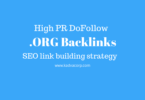If you spend much time on Facebook, you’ve probably seen a post from someone saying they are going to take a break from social media. Of course, people also take breaks from Instagram, Twitter, and other social sites. But why do they do that? What do they hope to gain? Well, for one thing, taking a break from doom-scrolling and social comparison might improve your mental wellbeing. Here’s how to approach taking a social media break and what to expect.
Can Taking a Social Media Break Improve Your Mental Health?
Be Alert to Your Own Mental Health Issues
One good reason to take a break is to assess and address your current mental health needs. Mental health issues may be more common than you realize. In fact, about 26% of American adults have some type of diagnosable mental disorder. And aside from that, nearly everyone deals with stress and common life traumas.
So, the first thing to consider is the state of your mental health. You can take mental health quizzes to find out if you might need help with bipolar disorder, depression, anxiety, and other mental disorders. Then, if the screening test shows an area of concern, you can talk to a psychotherapist about it. You may discover that an obsession with social media is hiding underlying problems that you could solve better through treatment. In any case, taking a break will be easier when you’re talking to someone who can help you deal with the emotional challenges you’re facing.
Set Yourself Up for Success
It takes a little planning to set yourself up for a positive break from social media. First, plan to spend some face-to-face or phone time with friends. Platforms like Facebook and Snapchat do keep us connected with our loved ones. So, if you’re going to cut out the tech solutions to loneliness, you need to get those connections in other ways.
Also, plan to practice great self-care during your break. Take long baths, go for hikes in the countryside, and eat the right amount of delicious, healthy foods. Once you have a plan for how to spend the next two to four weeks, you’re ready to cut the cord. Turn off the notifications for all your social media accounts and find out what it’s like to enjoy life without it.
What to Expect
At first, it might be hard to be away from the virtual crowd. You may find yourself reaching for your phone or wondering what someone is posting. But if you hang tight and follow your good plan, you will probably get past that and start enjoying your time in other ways before long. You might find that you suddenly have an abundance of time to get other things accomplished.
And there are other benefits. In one study, students who limited their social media use had less anxiety and fear of missing out after only three weeks. Another study found that when people took a break from social media saw small improvements in mental wellbeing. In this second study, the key seemed to be at least partly an improvement in sleep quality. So, whether you limit your social media to 30 minutes a day or you take a cold break from it altogether, you may see significant improvement.
It Doesn’t Have to Be Forever
If you do decide to forego social posting and scrolling for a while, keep in mind that this is your choice, and you can go back to it when you are ready. Social platforms do serve the need for connections and communications if you use them in the best ways. And there’s nothing wrong with that. Even better, once you have been away for a while, you may have a more objective insight into what you see there.
Author Bio: Marie Miguel has been a writing and research expert for nearly a decade, covering a variety of health- related topics. Currently, she is contributing to the expansion and growth of a free online mental health resource with Mind-Diagnostics.org. With an interest and dedication to addressing stigmas associated with mental health, she continues to specifically target subjects related to anxiety and depression.








Leave a Comment
You must be logged in to post a comment.